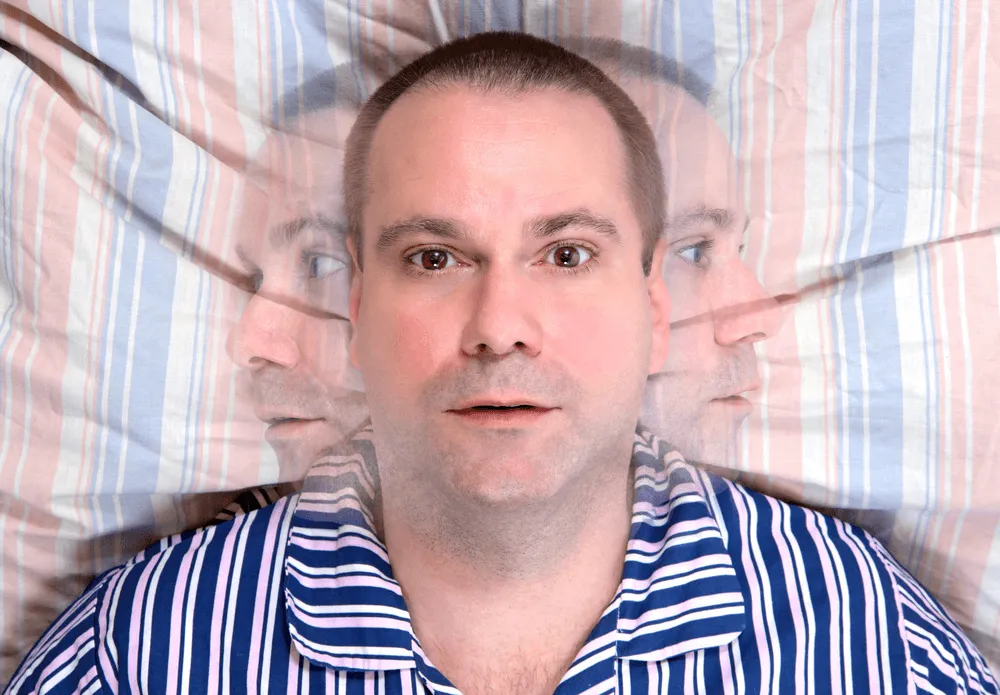Schizophrenia and Sleep Issues: What's the Link?

The Hidden Connection: Schizophrenia and Sleep Issues
When it comes to mental health, few topics are as intricate as the relationship between schizophrenia and sleep issues. If you or someone you care about is navigating the turbulent waters of schizophrenia, understanding how sleep plays a role can be a game-changer. Let’s dive into this often-overlooked connection and uncover ways to improve both sleep and mental health.
Why Sleep Matters in Schizophrenia
Sleep is not just a luxury; it’s a necessity, especially for those living with schizophrenia. Research shows that individuals with schizophrenia often experience sleep disturbances, including insomnia, nightmares, and altered sleep patterns. These issues can exacerbate symptoms, making it even more challenging to manage daily life.
- Impact on Symptoms: Poor sleep can lead to increased hallucinations, delusions, and cognitive impairments. When the mind is deprived of restorative sleep, it struggles to function optimally, which can intensify the symptoms of schizophrenia.
- Coping Mechanisms: Understanding this link is crucial for developing effective coping strategies. By prioritizing sleep hygiene, individuals can potentially mitigate some of the adverse effects of schizophrenia.
Common Sleep Issues Faced by Individuals with Schizophrenia
Let’s break down some of the sleep issues that frequently affect those with schizophrenia:
- Insomnia: Difficulty falling or staying asleep is a common complaint. The racing thoughts and anxiety that often accompany schizophrenia can make it nearly impossible to achieve a restful night.
- Nightmares: Vivid and distressing dreams can lead to fear of sleep, creating a vicious cycle of sleep deprivation.
- Restless Sleep: Many report frequent awakenings or an inability to enter deep sleep, which is essential for mental and physical recovery.
Understanding the Science Behind Sleep and Schizophrenia
The connection between schizophrenia and sleep issues isn’t just anecdotal; it’s backed by science. Studies indicate that disruptions in circadian rhythms—our body’s internal clock—can significantly impact those with schizophrenia.
- Neurotransmitter Imbalance: Sleep disturbances may stem from imbalances in neurotransmitters like dopamine and serotonin, which are already affected in schizophrenia.
- Stress Response: The stress of managing schizophrenia can lead to heightened arousal and anxiety, further disrupting sleep patterns.
Practical Strategies for Better Sleep
Improving sleep quality can have a profound effect on managing schizophrenia. Here are some practical strategies to consider:
- Establish a Sleep Routine: Going to bed and waking up at the same time each day can help regulate your body’s internal clock.
- Create a Sleep-Friendly Environment: Keep your bedroom dark, quiet, and cool. Consider using white noise machines or blackout curtains to enhance your sleep environment.
- Limit Stimulants: Reduce caffeine and nicotine intake, especially in the hours leading up to bedtime. These substances can significantly disrupt sleep patterns.
Support for Caregivers and Loved Ones
If you’re a caregiver or family member of someone with schizophrenia, it’s essential to understand the challenges they face with sleep. Here are some ways you can offer support:
- Encourage Open Communication: Talk about sleep issues without judgment. Understanding their experiences can help you provide better support.
- Research Together: Explore resources on sleep hygiene and mental health together. This can empower both of you to take actionable steps towards improvement.
- Be Patient: Change takes time. Celebrate small victories in sleep improvement, and remain supportive throughout the journey.
Resources for Further Reading
For those looking to delve deeper into the relationship between schizophrenia and sleep issues, consider exploring these resources:
- National Alliance on Mental Illness (NAMI)
- Sleep Foundation
- Mental Health America
Final Thoughts on Navigating Schizophrenia and Sleep Issues
Understanding the link between schizophrenia and sleep issues is crucial for anyone affected by this condition. By prioritizing sleep hygiene and seeking support, individuals can take meaningful steps toward improving their mental health. Remember, you’re not alone in this journey—there are resources and communities ready to support you.





